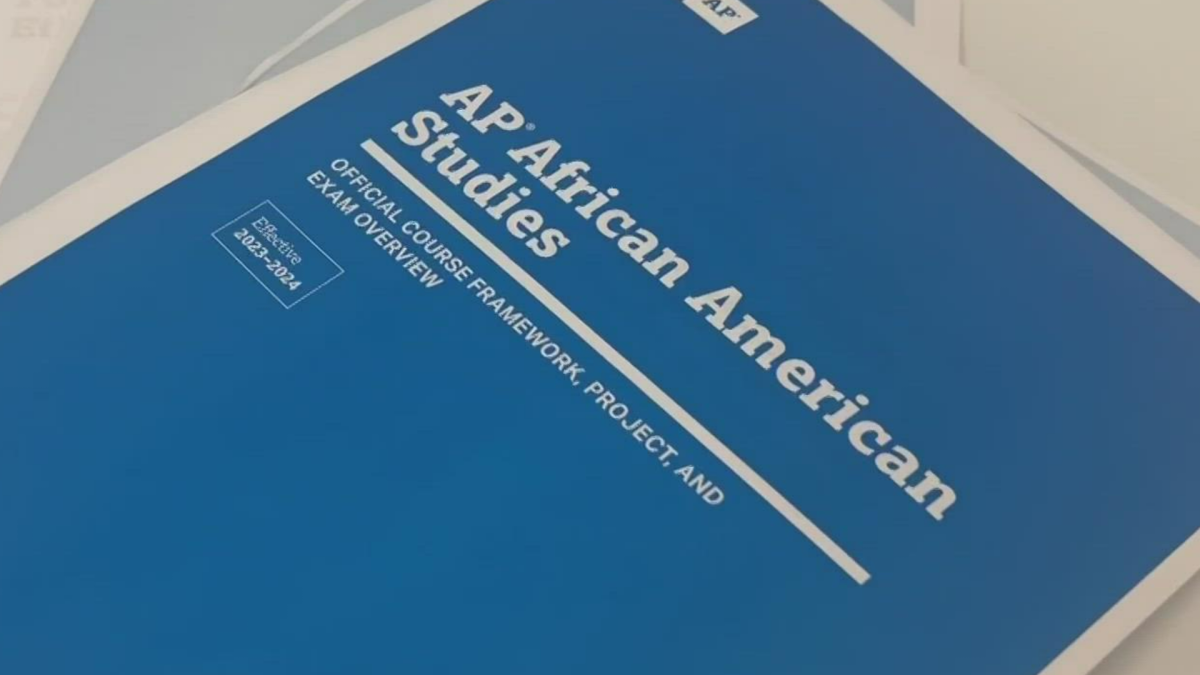Last month, Florida’s governor, Ron DeSantis, challenged the newest proposed course by the College Board: AP African American Studies. This class features significant areas of study encompassing the African diaspora, with a focus on topics such as freedom, enslavement, and resistance. The course entails a thorough examination of various movements and debates, including the Civil Rights Movement, and in-depth discussions exploring identity and culture. This course also includes a newer element for an AP test, with 20% of the exam grade being a 3-week research paper on a topic of a student’s choice. This course has already been nationally released across60 high schools, but DeSantis has made it clear that Florida will not offer this course. He strongly opposes the inclusion of critical race theory in the curriculum and has criticized the course as “indoctrination.” He has also claimed that the course violates the Stop WOKE Act, which he signed in 2022. This act prevents schools from teaching content about our country’s uncomfortable past and is against educating people on the idea that somebody is “inherently racist, sexist, or oppressive, whether consciously or unconsciously.” Ultimately, this decision only proves this attempt to shelter kids from our country’s disappointing past and sanitize history. This censorship started with banning books in schools, like To Kill a Mocking Bird and The Adventures of Huckleberry Finn, and has now only worsened and has now escalated to banning college-level courses for students. African American history is an integral part of the history of our nation and should be celebrated and taught rather than restricted among the United States.
Virginia’s governor, Glenn Youngkin, seems to think just like Florida’s governor, and has now joined the mission to regulate the AP African American Studies course. On February 20th, he posted on Twitter, saying, “Black history and culture is a vital part of our national story, and we cannot let left-wing activists twist and distort it to advance their radical political agenda.” The nation finds itself at a crossroads yet again, as the debate over education takes over, with Republicans arguing that Democratic influences could pervert historical truth with divisive content. This fear has already led to sharp divisions and scrutiny in some states, including Arkansas, Missouri, and North Dakota, where officials plan to examine course material before it is cleared for classroom use.
The College Board has acknowledged DeSantis’s criticism but refuses to change the course curriculum, claiming that “There is always debate about the content of a new AP course. That is good and healthy.” DeSantis fears that this course is being politically spewed to favor one party and is too “woke.” DeSantis’ communications director, Taryn Fenske, defined “woke ” as slang for progressive activism and the belief in systemic injustices. DeSantis’ general counsel, Ryan Newman, added that it refers to the belief in systemic injustices and the need to address them. However, DeSantis himself denies the existence of systemic injustices. This denial allows him to perform controversial actions, which started with arresting Floridians for voter registration and has now amplified to making incredulous accusations about AP African American Studies out of fear that the course will teach kids about relevant social injustices in our country and intensify tensions between the College Board, challenging the curriculum they have been teaching in schools for decades.
Although the introduction of the much-needed AP African American Studies course has been a positive development for America’s school system, it has faced criticism from sources beyond just DeSantis. Some aspects of the course curriculum have raised concerns from black scholars that some of the content in the course is only optional, such as the Black Lives Matter movement. The fundamental purpose of African American Studies is to establish a link between the past and the present. Therefore, making some of the course material optional and exploratory diminishes its significance, whether the decision was intentional or not. The African American experience is not an optional addition to history, it’s essential. Blocking out certain elements of history makes scholars, teachers, and students question the College Boards’ real intentions when integrating the course nationwide and I will be curious to see how this course goes after this year. On February 11th, the College Board responded to people’s criticisms and questions about the course’s commitment by stating, “Our commitment to AP African American Studies is unwavering. This will be the most rigorous, cohesive immersion that high school students have ever had in this discipline…We are proud of this course. But we have made mistakes in the rollout that are being exploited”.
Manny Diaz, Jr., Florida’s Commissioner of Education, has strongly criticized the African American history curriculum, claiming that it is promoting “woke indoctrination” instead of providing genuine education. Diaz emphasized that although the teaching of African American history is mandatory, this particular curriculum has not been approved by the department.
Florida has recently released a chart of concerns regarding the curriculum, which Diaz posted on Twitter and also said, “Despite the lies from the Biden White House, Florida rejected an AP course filled with Critical Race Theory and other obvious violations of Florida law. We proudly require the teaching of African American history. We do not accept woke indoctrination masquerading as education.” The topics on this chart include intersectionality and activism, the Movement for Black Lives, Black queer studies, Black feminist literary thought, and the Reparations movement. The state has also pointed out that the inclusion of intersectionality, a crucial aspect of critical race theory, in the curriculum has stirred controversy among conservative individuals such as DeSantis, who are seeking to ban the teaching of critical race theory. Furthermore, the state has criticized the reading requirements for works by Black writers such as bell hooks and Kimberlé Crenshaw, which discuss intersectionality and white supremacy.
Overall, DeSantis’s criticism of AP African American Studies goes beyond conservative ideologies and only enhances the crippling censorship in America. DeSantis’s objections strip students of key education principles and suppress them from important knowledge. It’s as if Florida’s number one enemy is an educated public. As political divides only heighten between Democrats and Republicans, our education system is diminishing, and the democratic notions on which our country was founded are fading due to restrictive laws that sanitize our country’s disappointing past. Not to mention, even more recently, DeSantis signed a bill gaining stricter state power over Disney and its theme park in Orlando. The sad truth is that we cannot erase the past. But, the best we can do is acknowledge it, inform and teach students the good, bad and ugly parts of history and the lasting effect it has on African Americans to this day. Ultimately, it is important to prioritize the truth in education, even if it challenges preconceived notions or beliefs, as it is better to confront and correct misconceptions and misinformation prevalent in our education system today. Many Republicans are apprehensive about the teaching of certain concepts, particularly critical race theory, as they fear that it may indoctrinate students with certain ideologies. The mere thought of DeSantis’s racist ideology and phobia of black culture dictating the curriculum of college courses in Florida is deeply unsettling. It is a frightening possibility that such actions would only embolden him to spread his twisted agenda across the country if he runs for president in 2024, which truly is a nightmare in itself for students across the US whose education is being dismantled by fears of confronting the truth. With DeSantis’s sights set on amplifying white supremacist ideologies in Florida and the South, his insidious aims and aspirations will undoubtedly escalate, posing a grave threat to the very fabric of our society and what we teach the next generation. My only hope is that it is not too late to stop him.











